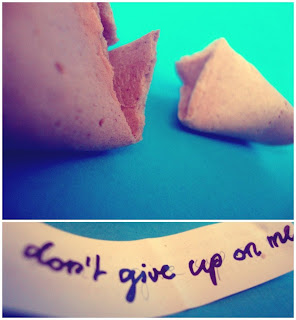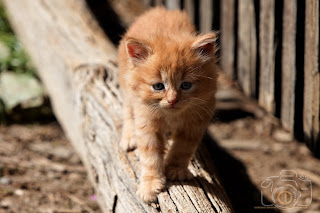
1. Even if you can't change the world,
that doesn't mean anything... You can make a difference to those you can reach out to. Camper told us a story that has really stuck with me, and I'd like to share it, to the best I can remember. There was a man who was on vacation at the beach in Florida. He enjoyed waking up early in the mornings, so he went down to the beach and walked along the shores as the sun rose. On the previous night, there had been a high tide, so hundreds of washed up starfish lay on the shore. While the man walked along, he picked one of them up, and examined it. Then, he tossed it back into the water. As he continued to walk, he continued to pick them up one by one and throw them back into the water. As the man progressed along the beach, he noticed a figure from afar approaching. Soon, he made out the figure of another man. When the man approached, he made small talk about the tide and the beautiful weather, and explained how he lived in Florida and grew up near these beaches.
He then continued to ask "Why are you taking the time to pick up all of these starfish and throw them back in the water? They won't survive much anyways, they'll die soon when the sun comes up when they start absorbing the heat from the water. What difference does it make?". The man then picked up another starfish, looked at it for a second, then threw it as far as he could into the water. Then he turned back around and said "I know it makes a difference to that one." This story hit me hard, because it made me think about how people make excuses all the time, saying things like "I'm too young, I can't make a difference" or "It's just picking up a bit of litter, it won't change the world." But the reality is, you don't have to change the world. Contributing is just as great. Think about it. If everyone just picked up litter in their own neighborhoods, the whole world would be a prettier place, and although each individual didn't change the world, each individual's effort helped to make a difference.

2. Giving up on others allows them to give up on themselves. Although I've heard this before, I never really bothered to think about it. But at RYLA, I've how this can really be true. There was one girl in our group, who constantly talked about how she had trust issues, issues coping with people, and issues in communication. To be honest, I wasn't very fond of her; she acted as if we were supposed to be some kind of therapy group for her. I could see the looks on people's faces as soon as she started talking and voicing her opinions and issues. While we were doing trust exercises, my attitude shifted. In the activity, all the group members formed something like a zipper, standing in two parallel lines and sticking their arms out. Then, each person would take turns to climb on to the bleacher platform, and fall down backwards onto all the hands. As expected, she refused to go up there. But as her group members, we all encouraged her, telling her she could do it. We could've just let it be, but some people in the group were persistent on encouraging her to go up there. Her expression prior to falling contained sheer terror. However, after she fell, I could that see her face contained honest excitement and happiness. She did it. She trusted us. It was like a breakthrough to her. At the end of camp, when everyone was giving thanks and making shout outs to each other, she expressed her thankfulness that we were there for her and helped her grow. And the thing was, when she said it, rather than thinking to myself "oh boy, here we go again", I could tell it was genuine. We were there for her. Regardless of the fact that she was so difficult. Being there and not giving up on her helped her see her mistakes and weaknesses, and encouraged her to want to change that. We didn't give up on her, and she didn't give up on herself. People always go low on self-esteem sometimes, believing they can't do it due to let downs. However, seeing that someone believes in them and wanting to prove they can do it really provides motivation and encouragement. It doesn't take much to show someone you believe in them, but it could mean a lot to them. So don't give up on people, being there for them makes them stronger.

3. Trust and communication are the keys to all relationships. Trust doesn't just form overnight. You can't be trusted in the big things until you're trusted in the smaller things. The realization about needing to be trusted in small things first really made me understand my dad. People joking around about my driving or women's driving in general (usually my brother) really gets on my nerve. My dad also always says "just because you're getting your licence in 2 months doesn't mean I'll let you drive around by yourself... not until I feel you're ready." He also tends to get really frustrated with me when I make mistakes. I understand it all now though. I have to be flawless and not make any mistakes in order to gain his full trust. Getting frustrated back gets us no where. At camp, I realized how easy it was to gain trust. We did an activity in which everyone was blindfolded except the leader, who was restricted from touching the rest of the chain. The leader had to make up a language we could understand, without using English, to convey the directions to us. No one doubted the leader, everyone was ready to go wherever they would be led, regardless of being blindfolded. If you honestly trust someone, sometimes you don't even need to use better judgement; you know they will lead you in the right direction. In order for a group of people to be successful, it is important that they all trust each other. It helps communication, which helps to make the group of people functional. Think about if you're doing a project. If you're the type of person that can't trust your peers to get the job done, you double your workload by doing their work as well. The group isn't functional, because you're doing all the work yourself. You need to be able to talk to the people around you. Especially when something is wrong, it is important to discuss why things might be going different from the way they should be going, and the most efficient way to fix the problem. When everyone's voice is heard, everyone is satisfied. Lack of trust and communication are the cause of downfalls of many companies and relationships.

4. Silent actions speak just as loud as words. There was one activity where the whole team had to stand on the log, and we were told to arrange ourselves in order by our birthdays without talking. This task was quite difficult because it was hard to balance on the log and switch positions. If you fell, you had to go back to the position you came from. At first, many people were falling. But as we progressed, it became easier. It didn't become easier because we were suddenly more able or more experienced; it became easier because we became comfortable with each other. Everyone was willing to help when it looked like someone was having difficulty; when someone was about to fall, several hands shot in for the rescue without even being asked; everyone's arms were there just ready for when they were needed. We were all there for each other, and we all knew it, without anyone having to say anything. Our actions spoke louder than words. In some situations, it's better to show someone than to tell someone. Give them a smile, lend a helping hand, show them you care. It means more than simply saying it sometimes.

5. Being happy > Being right. Okay soo I definitely admit I'm one of those people that doesn't like being wrong, but some people take it wayy outta hand. There's some people that will always do whatever possible to be the best and always be right. The people who always want to do things their way instead of listening to the input of others. They do it because being right makes them happy, but is that really what should matter? Why is it so important to always be right? I suppose it's part of human nature, but I don't think saying things like "I'm wrong, you're right" and "I'm sorry, it was my fault" should be so difficult! Just put down your ego sometimes and focus on living happy, not living right.

6. Break away from the selective hearing. On the last day of RYLA, we did an activity where there was a large "island" in the middle, and "small islands" around, each containing a team. The objective was to get all of the teams onto the large island, using the materials given, without touching the ground. All of the teams made it over within 30 minutes. However, the Red Team was having trouble getting across. While most other teams were sitting around watching them, or cheering on their own accomplishment, my team went through the crowd and focused on cheering them on and sharing our materials to help all their team get across. See the problem was, most teams turned it into a competition and focused on getting their own team across, rather than the real goal of getting everyone to the big island. We heard what we wanted to hear and our brains transformed it into "get to the island first." Thats the problem with us humans, sometimes, we loose sight of the big goal, because we become distracted by the smaller goals. When people get distracted by the smaller goals or held up by current situations, they stray from the ultimate goals. Think about it.. if your ultimate goal is graduating from college, but you get caught up in partying or focus on trying to graduate high school by sliding by, you won't be successful in college. It's important to think ahead and set checkpoints. Look at the big picture, not the current one.
These are just some of the manyy things I've learned during my four days at RYLA, and as you can see, our schedule was PACKED! I could blog about camp all night long, but I think I'll leave it at that for now. I hope I was able to inspire you atleast a fraction of the amount that RYLA inspired me.
No comments:
Post a Comment